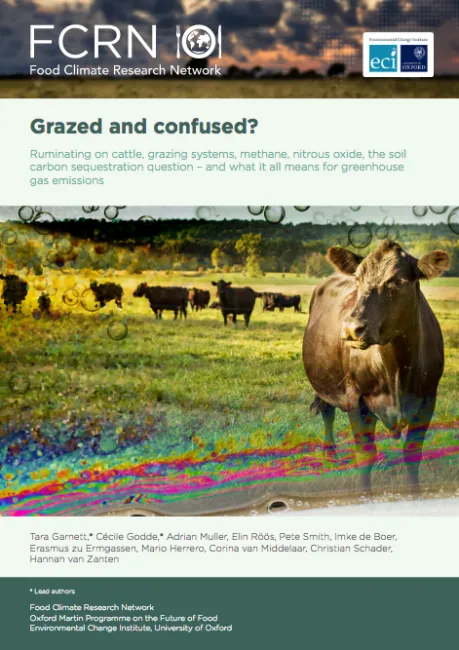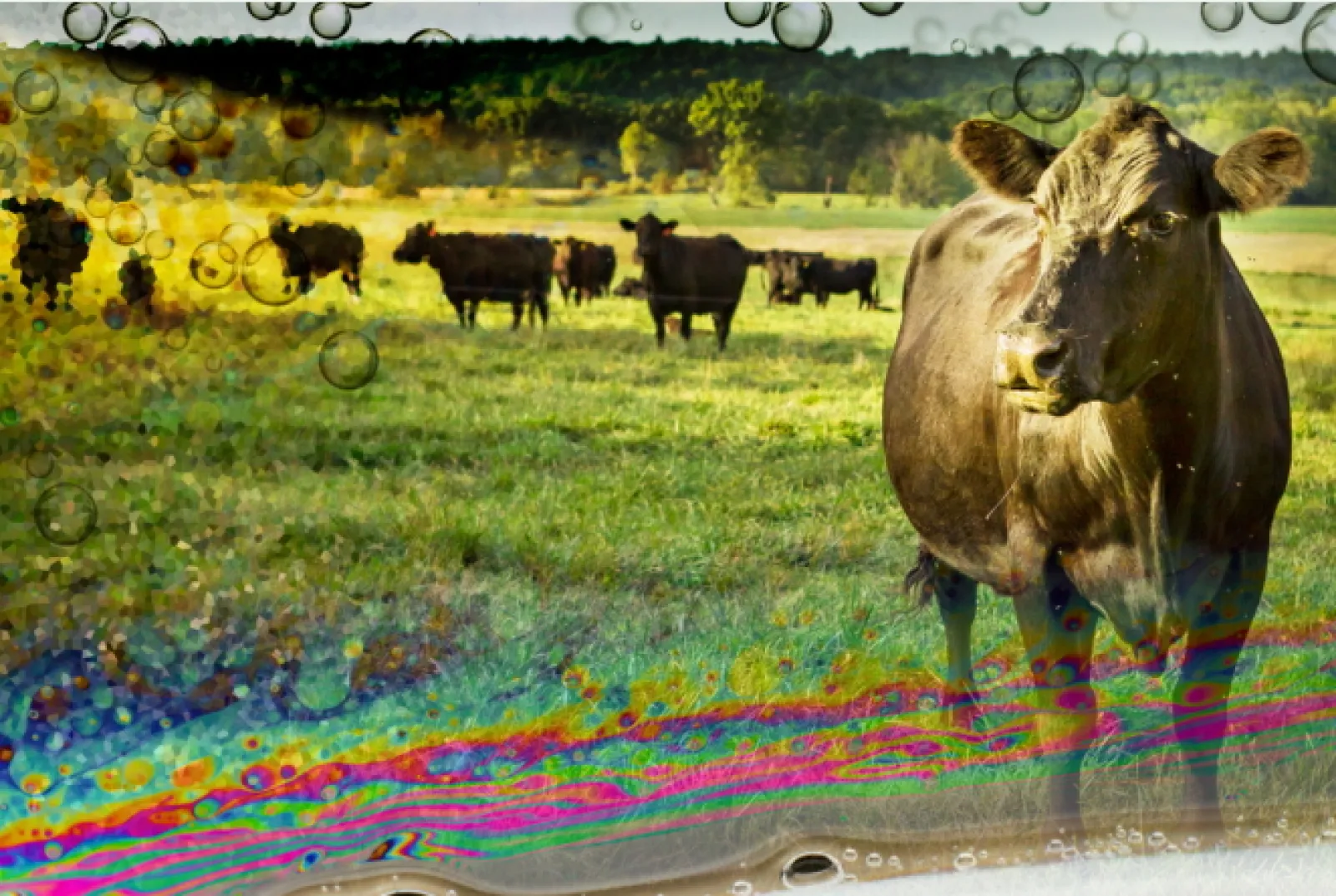Ruminating on cattle, grazing systems, methane, nitrous oxide, the soil carbon sequestration question – and what it all means for greenhouse gas emissions.
This project aims to dissect claims made by different stakeholders in the debate on grazing systems and their greenhouse gas emissions and evaluate them against the best available science, providing an authoritative and unbiased answer to the question: Is grass-fed beef good or bad for the climate?
Farm animals, and the consumption of meat and dairy, are a major contributor to the problem of climate change. It is well-established that the livestock sector contributes some 14.5% of global greenhouse gas emissions, but there is less agreement on the specific climate impact of different types of animals and production systems. Most controversy surrounds the debate on ‘grass-fed’ beef and how its climate impact compares with other types of meat or meat produced in more intensive systems.
Some have argued that grazing animals can actually stimulate grass to be more productive and put down deeper roots, drawing carbon out of the atmosphere and storing it in soils. Others go even further, arguing that this carbon sequestration can, in fact, offset all other emissions from ruminants, and in doing so solve our climate problems.
It is safe to say that this debate has left people either polarised or confused. Is grass-fed better or is it worse for the climate? What’s actually true?
Report findings
This report finds that better management of grass-fed livestock, while worthwhile in and of itself, does not offer a significant solution to climate change as only under very specific conditions can they help sequester carbon. This sequestering of carbon is even then small, time-limited, reversible and substantially outweighed by the greenhouse gas emissions these grazing animals generate. The report concludes that although there can be other benefits to grazing livestock - solving climate change isn’t one of them.
The project is led by FCRN’s coordinator and lead researcher Dr Tara Garnett in collaboration with Cécile Godde and a team of experts drawn from research institutes all over the world.
Download the report




